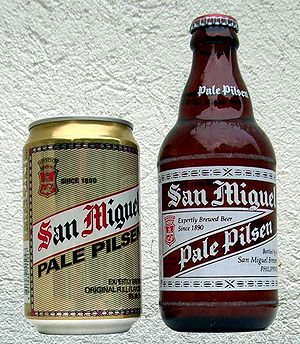Atty. Elpidio V. Peria
PLDT-Digitel Merger : Who Gets To Say It's For the Public Good?
President Noynoy Aquino according to a news article yesterday by Philippine Daily Inquirer has recently ordered the Department of Science and Technology (DOST) and the National Telecommunications Commission (NTC) to investigate whether the merger between Philippine Long Distance Telephone (PLDT) and Digitel may have any undue disadvantage to other players in the telecom industry.
While he's at it, Sen. Joker Arroyo has a barb to the government agencies dealing with the merger, saying : “The NTC, SEC, PLDT, and Digitel are talking among themselves about the merger or sale of the controlling interest of Digitel to PLDT as if Congress does not exist,", as reported by Malaya in its online edition dated May 19, 2011.
From the news item, it was not only the legislator who opposed the merger, but also industry players GLOBE Telecom, consumer groups and third-party players like Eastern Telecoms which argued before the NTC that with the merger, “PLDT will control 70 percent of the entire telecom market, including mobile, landline, inter-carrier services, international gateway facilities, broadband, and value-added services, including six out seven international cable systems that carry outbound voice and data traffic, and four out of five cable landing stations.”
“The dominance will extend to a commanding control of Internet Exchanges and local Internet peering. PLDT will be in a position to restrict access to locally hosted content by disallowing traffic from competitors to pass through its network,” the company added.
PLDT on the other hand, points out in its press releases, like in a statement sent to Sun.Star Cebu, that consumers will benefit from the merger, saying the PLDT Group combined with Digitel will give them higher quality and more affordable services to fixed line, wireless and broadband subscribers.
PLDT also said that it intends to keep the operations of Sun Cellular “separate and intact.” It also wants to maintain and capitalize on Sun Cellular’s operations and brand equity to continue serving specific segments of the market, “especially those who prefer ‘unlimited’ type of services.”
It is good these concerns and commitments to serve the public good are all coming out now, but ultimately, under what rules will the PLDT be really held into account for these commitments including the resolution of these fears and concerns?
In addition to clarifying what these rules are, which of these entities identified earlier, from President Noynoy Aquino, the NTC or the Congress which has two branches, the Senate and the House of Representatives, will have the final say on whether this merger goes ahead or not?
Or maybe it is up to Manuel V. Pangilinan himself, the PLDT CEO, who, perhaps in an act of delicadeza similar to his initiative in owning up to the plagiarized graduation speech he delivered some years back, might just drop this deal, as the opposition to it is now hurting the image of his company.
But will these actions be enough to finally resolve the issue of monopolies or the lack of competition in the telecoms industry?
As pointed out by former NEDA Chief Ciel Habito in his NO FREE LUNCH column, the Philippines does not have the comprehensive competition policy that the US has long had, to give it a strong legal basis to stop the PLDT-Digitel merger.
Ultimately, without an anti-trust law and an anti-trust agency to resolve these concerns in an orderly manner, the oppositors to this deal will just have to go to the Supreme Court to resolve their concerns, and one principle that will guide them is already articulated by the Supreme Court in the case of Tatad v. The Secretary of the Department of Energy, G.R. 124360, November 5, 1997, which said that :
the fundamental principle espoused by section 19, Article XII of the Constitution is competition for it alone can release the creative forces of the market. But the competition that can unleash these creative forces is competition that is fighting yet is fair. Ideally, this kind of competition requires the presence of not one, not just a few but several players. A market controlled by one player (monopoly) or dominated by a handful of players (oligopoly) is hardly the market where honest-to-goodness competition will prevail. Monopolistic or oligopolistic markets deserve our careful scrutiny xxx...
The constitutional provision cited in that case reads:
Sec. 19. The State shall regulate or prohibit monopolies when the public interest so requires. No combinations in restraint of trade or unfair competition shall be allowed.
Fr. Joaquin Bernas said that “as the provision is worded, monopolies are not necessarily prohibited by the Constitution. The State must still decide whether public interest demands that monopolies be regulated or prohibited. On the other hand, combinations in restraint of trade and unfair competition are prohibited by the Constitution.”
At the end of the day, absent any anti-trust law in our current setting, the key question that should be asked is whether the public interest is served by this merger and all the entities we have mentioned, including President Pnoy will have their take on this issue. It is the Supreme Court then that will become the final arbiter of this issue, unless the parties will find ways to resolve this on their own and drop this deal and just spin themselves off into independent entities that will compete on their own in the currently burgeoning telecoms market.
oOo
Comments are welcome : pingperia16@yahoo.com; pingperia16@gmail.com





